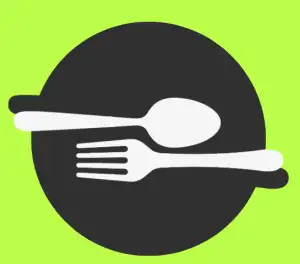Unlock the Secrets of Cup to Gram Conversion: Mastering Precision in the Kitchen

- Understanding the Difference Between Cups and Grams
- Importance of Accurate Measurements in Cooking
- Commonly Used Ingredients and Their Cups to Grams Conversion
- Flour
- Sugar
- Butter
- Milk
- Oil
- Salt
- Tips for Converting Cups to Grams in Recipes
- Using Conversion Charts and Online Tools for Accuracy
- Adjusting Recipes Based on Cups to Grams Conversion
When it comes to cooking and baking, precision is key. The ability to accurately measure ingredients can make or break a recipe. One common challenge faced by home cooks and professional chefs alike is converting measurements from cups to grams. Understanding the conversion between these two units of measurement is essential for achieving consistent results in the kitchen.
While cups are commonly used in North America, grams are the preferred unit of measurement in many other parts of the world. This can lead to confusion when following recipes from different sources or attempting to recreate dishes from international cuisines.
In this article, we will unlock the secrets of cup to gram conversion, providing you with the knowledge and tools necessary to master precision in your culinary endeavors. We will explore the difference between cups and grams, discuss the importance of accurate measurements, provide conversion charts for commonly used ingredients, and offer tips for adjusting recipes based on these conversions.
By understanding and implementing cups to grams conversion techniques, you will gain confidence in your cooking abilities and be able to create delicious dishes with consistent results every time. So let's dive into the world of culinary measurements and unlock the secrets of cup to gram conversion!
Understanding the Difference Between Cups and Grams
In the world of cooking, precision is key. To achieve accurate measurements, it's important to understand the difference between cups and grams. Cups are a volume measurement, while grams are a weight measurement. Cups can vary in size depending on the country or region, whereas grams provide a standardized unit of weight. This distinction is crucial because different ingredients have different densities, meaning that one cup of flour will not weigh the same as one cup of sugar. By understanding this difference, you can ensure precise measurements and perfect results in your culinary endeavors.
Importance of Accurate Measurements in Cooking
Accurate measurements are crucial in cooking to ensure consistent and successful results. Whether you're baking a cake or making a savory dish, precise measurements can make or break the final outcome. Using the correct amount of ingredients not only affects the taste and texture but also the overall balance of flavors. Additionally, accurate measurements help in replicating recipes and allow for better understanding of the science behind cooking. So, don't underestimate the importance of precision in your culinary adventures!
Commonly Used Ingredients and Their Cups to Grams Conversion
a. Flour:
- 1 cup of all-purpose flour is equivalent to approximately 125 grams.
- 1 cup of whole wheat flour is equivalent to approximately 120 grams.
b. Sugar:
- 1 cup of granulated sugar is equivalent to approximately 200 grams.
- 1 cup of brown sugar is equivalent to approximately 220 grams.
c. Butter:
- 1 cup of butter is equivalent to approximately 227 grams.
- For smaller measurements, every tablespoon of butter is equal to around 14 grams.
d. Milk:
- 1 cup of milk is equivalent to approximately 240 grams.
e. Oil:
- Different types of oil have varying densities, but as a general rule, 1 cup of oil weighs around 224 grams.
f. Salt:
- As salt can vary in density, it's best to use weight measurements for accuracy. Roughly, one teaspoon of salt weighs about 5 grams.
Remember that these conversions are approximate and can vary slightly depending on factors such as humidity and the method used for measuring ingredients.
Flour
Flour is a staple ingredient in baking, and getting the measurement right is crucial for successful results. Converting cups to grams for flour can be tricky as it depends on factors like humidity and how tightly packed the flour is. As a general rule, 1 cup of all-purpose flour weighs around 120 grams. However, for more accuracy, it's recommended to use a kitchen scale. Remember to spoon the flour into the measuring cup and level it off with a knife for precise measurements.
Sugar
Sugar is a staple ingredient in many recipes, and getting the measurement right is crucial for achieving the desired taste and texture. When converting cups to grams for sugar, keep in mind that 1 cup of granulated sugar weighs approximately 200 grams. Brown sugar, on the other hand, is denser and weighs around 220 grams per cup. To ensure accuracy, it's recommended to use a kitchen scale for precise measurements. Remember, mastering the conversion of cups to grams for sugar will help you create perfectly sweetened treats every time.
Butter
Butter is a common ingredient in many recipes, and it's important to accurately measure it for the best results. When converting cups to grams, 1 cup of butter is equal to 227 grams or 8 ounces. This conversion is crucial because using too much or too little butter can affect the texture and taste of your dish. So, make sure to use a kitchen scale or conversion chart to achieve precision in your cooking.
Milk
Milk is a common ingredient in many recipes, and it's important to have accurate measurements for the best results. When converting cups to grams for milk, it's crucial to consider its density. One cup of milk weighs approximately 240 grams. However, this can vary depending on the type of milk (whole, skim, or condensed). To ensure precision, use a kitchen scale for measuring milk in grams instead of relying solely on cup measurements. This will help you achieve consistent and delicious results in your culinary creations.
Oil
Oil is a common ingredient in many recipes, and knowing the accurate conversion from cups to grams can ensure precision in your cooking. When converting oil from cups to grams, it's important to note that the density of oil can vary depending on the type. As a general guideline, 1 cup of oil is approximately 224 grams. However, it's always recommended to refer to a reliable conversion chart or online tool for specific types of oil to achieve the most accurate measurement. By mastering the conversion of oil from cups to grams, you can confidently add just the right amount to your dishes for perfect results every time.
Salt
Salt is an essential ingredient in many recipes, but its conversion from cups to grams can be a bit tricky. One cup of salt weighs approximately 287 grams. However, it's important to note that the density of salt can vary depending on the type and brand. So, it's always best to use a kitchen scale for accurate measurements. Remember, a little goes a long way with salt, so be cautious when adding it to your dishes.
Tips for Converting Cups to Grams in Recipes
When converting cups to grams in recipes, there are a few tips to keep in mind. First, it's important to note that different ingredients have different densities, so the conversion may not always be straightforward. Secondly, it's helpful to invest in a good kitchen scale for accurate measurements. Thirdly, remember that 1 cup is equal to 236.6 grams, but this can vary slightly depending on the ingredient. Lastly, when converting a recipe, consider the desired outcome and adjust the measurements accordingly. With these tips, you'll be able to convert cups to grams with precision and achieve delicious results in your cooking.
Using Conversion Charts and Online Tools for Accuracy
Using conversion charts and online tools can be incredibly helpful in ensuring accuracy when converting cups to grams in recipes. These resources provide precise measurements for a wide range of ingredients, taking the guesswork out of the conversion process.
Conversion charts are often included in cookbooks or can be found online. They typically list common ingredients along with their corresponding measurements in both cups and grams. This allows you to easily find the conversion you need for a particular ingredient.
Online tools, such as cooking websites or mobile apps, offer even more convenience. With just a few clicks or taps, you can input the amount of an ingredient in cups and instantly receive its gram equivalent. These tools often have extensive databases that cover a variety of ingredients, making it easy to convert any recipe accurately.
When using conversion charts or online tools, it's important to ensure that you're using reliable sources. Look for reputable websites or trusted cookbooks that have been reviewed by experts. This will help ensure the accuracy of the conversions provided.
By utilizing conversion charts and online tools, you can take the guesswork out of converting cups to grams and achieve precise measurements in your recipes. This precision will ultimately lead to better results in your cooking and baking endeavors.
Adjusting Recipes Based on Cups to Grams Conversion
Once you have mastered the art of converting cups to grams, you can easily adjust your recipes for precision in cooking. For example, if a recipe calls for 1 cup of flour and you want to convert it to grams, simply refer to your conversion chart or online tool. Let's say 1 cup of flour is equivalent to 120 grams. If you want to decrease the amount of flour in the recipe, you can use this information to adjust accordingly. Similarly, if a recipe calls for a specific weight in grams and you prefer using cups, you can reverse the process by referring to your conversion chart or tool. By adjusting recipes based on cups to grams conversion, you can ensure that your dishes turn out perfectly every time.
In conclusion, mastering cups to grams conversion is essential for achieving precision in cooking. Accurate measurements ensure consistent results and help maintain the integrity of a recipe. Understanding the difference between cups and grams allows for better control over ingredients, resulting in perfectly balanced flavors and textures. By using conversion charts and online tools, cooks can easily convert their recipes to grams for more precise measurements. Adjusting recipes based on cups to grams conversion also allows for customization and experimentation in the kitchen. So, unlock the secrets of cup to gram conversion and elevate your culinary skills to new heights!
Published: 18. 11. 2023
Category: Food



